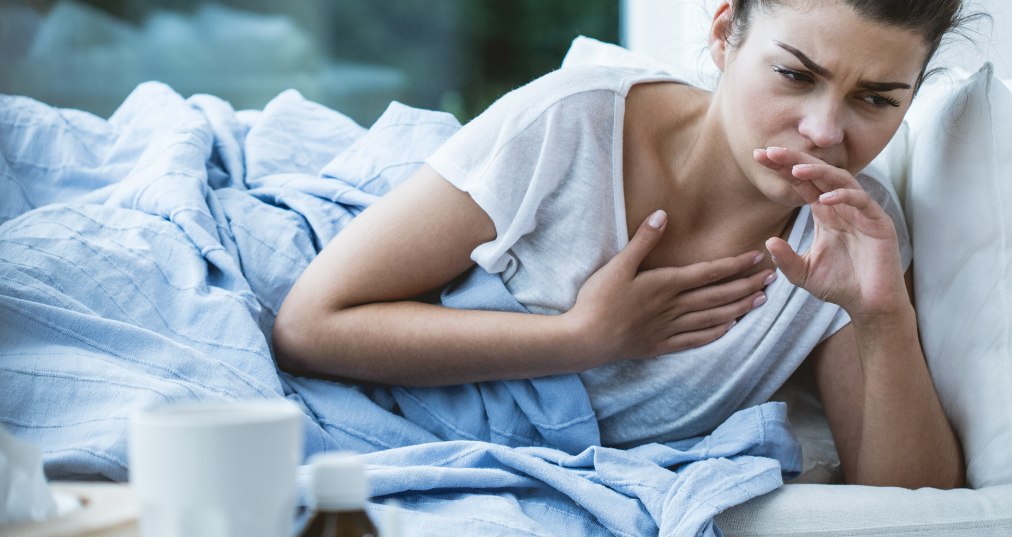Have you ever woken up one morning and felt your heart beat faster? This condition suddenly causes discomfort and even fear. There are several factors that can cause a person to experience heart palpitations upon waking. What factors could be the cause?

Causes of rapid heart rate when waking up
Rapid heartbeat, or medically known as palpitations or tachycardia, is a condition in which your heart beats faster, harder, and irregularly. Not only in the chest, but also in the throat and neck.
In most cases, a rapid heartbeat with no other symptoms is a common condition that usually lasts for a while and goes away on its own. However, if you feel a too frequent rapid heartbeat, which gets worse and is accompanied by certain symptoms, you should be careful.
Below are some of the causes and factors that increase your risk of rapid heart rate.
-
Stress
If you wake up with shaking, cold sweats, palpitations and a bad feeling, it can be due to stress. Stress can affect your body in many ways, including increasing your heart rate. Fear, panic, anxiety, happiness, anger or sadness – all can increase levels of adrenaline and cortisol in the body, which increases heart rate. To overcome this, try taking deep breaths repeatedly until you feel more relaxed. In addition, exercise and getting enough sleep are also the best ways to deal with stress.
-
Caffeine consumption
When you wake up and feel your heart beating fast, try to remind yourself how much caffeine you drank before bed. The reason is that caffeine can be one of the causes that makes your heart beat faster after waking up. Caffeine is a stimulant that can stimulate the central nervous system in the brain. The central nervous system serves as the command center for all bodily functions. Because of this, drinking coffee can have various side effects on your body. This usually happens when you’ve had too much coffee or caffeinated beverages in a day.
-
dehydration
Did you know that dehydration can also cause your heart to beat faster? Yes, losing too much fluid or not drinking enough before bed can cause heart palpitations accompanied by dry mouth, dark urine and muscle cramps. Dehydration can cause changes in the number of electrolytes in the body, leading to a drop in blood pressure. Well, this condition puts pressure on the body, resulting in an abnormal heart rate. As a result, you may suddenly wake up with a pounding heart. Therefore, meet your fluid intake before bed to avoid dehydration during sleep.
-
Use of certain drugs
Many prescription medications, such as asthma or thyroid medications, can cause palpitations. This is because there are several drugs that are known to affect metabolic processes, and there are also drugs that can cause changes in the heart’s electrical conduction system. If the medications you usually take have side effects that may disrupt your daily heart rate, seek medical attention right away.
-
Anemia as a cause of rapid heartbeat when waking up
Anemia is a condition where your red blood cell count is low, preventing your body from getting enough oxygenated blood. As a result, you can often feel tired and weak. Although it doesn’t always cause heart palpitations, people with anemia also sometimes complain that their heart often beats rapidly when they wake up due to lack of oxygen in the blood.
-
Abnormal heart function
Palpitations upon waking can also be caused by certain medical conditions, such as arrhythmias. Arrhythmia is a heart condition characterized by an abnormal heartbeat or rhythm, in which the heartbeat is too fast, too slow, irregular, or too early. In addition to arrhythmias, heart damage, heart attack, and heart failure can also cause a rapid heartbeat upon waking.
-
Bad dreams
While having a terrible dream, an individual will in general awaken around evening time. This condition can cause palpitations when you awaken. In any case, resist the urge to panic. At the point when you have quieted down, your pulse will get back to business as usual.
-
Fever
Radical changes in internal heat level can cause heart palpitations. Very much like with a fever. At the point when the body attempts to get back to its generally expected temperature, the heart beats quicker. No big surprise individuals with a fever (particularly those with an internal heat level of 37 degrees Celsius) awaken with heart palpitations.
-
Absence of rest
A few investigations have demonstrated the way that absence of rest can make the heart beat quicker. In this manner, rest something like 7-9 hours around evening time to keep away from heart palpitations when you awaken.
-
Sleep apnea
Sleep apnea is a condition that occurs when breathing suddenly stops several times during sleep. This sudden cessation of breathing can lower oxygen levels and put extra pressure on the heart, leading to symptoms such as palpitations upon waking.
Some of the other symptoms may include loud snoring, waking up gasping, dry mouth upon waking, and fatigue the next day. This condition needs immediate attention as the reduced oxygen supply to the brain and body can have very dangerous effects. It’s important to know when your heart rate is high when you wake up.
Basically, some of the causes of tachycardia do not only occur when you wake up. This is because heart rate tends to slow down during sleep when it does under normal circumstances, which is when the body is unaffected by substances. Well, when you wake up, your heart rate tends to increase even more.
However, if your body has been previously affected by caffeine, stress, types of drugs, and some of the other causes mentioned above, it will trigger a faster heart rate when you are sleeping or upon waking.
Contact a doctor right away if you have a rapid heart rate that is accompanied by chest pain or shortness of breath so that you can get the right treatment right away.
